
Find Help
More Items From Ergsy search
-

How are screw worm infestations treated?
Relevance: 100%
-
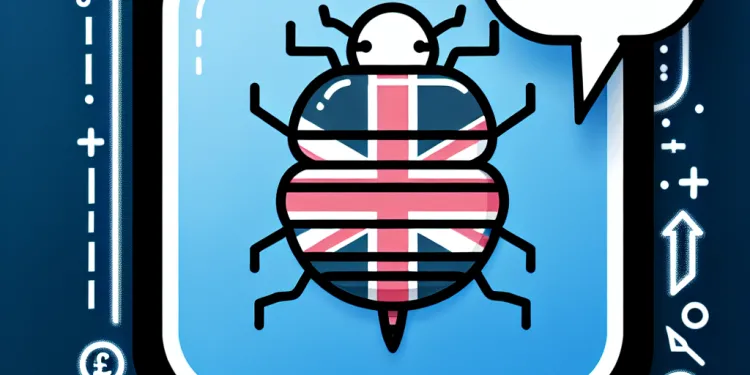
Can screw worm infestations be prevented?
Relevance: 99%
-

How do screw worms infest their hosts?
Relevance: 98%
-

What are the symptoms of a screw worm infestation?
Relevance: 98%
-
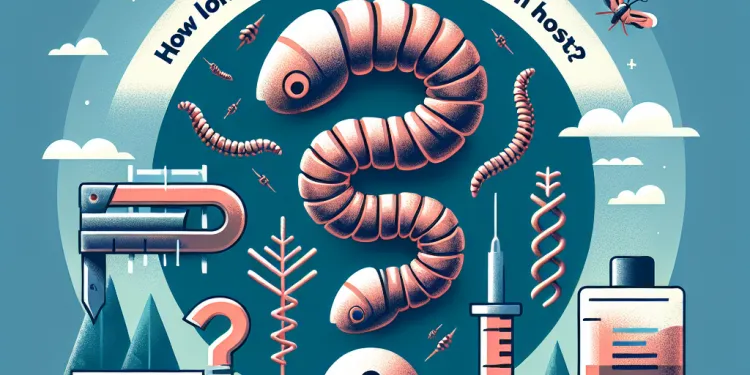
How long do screw worm larvae typically infest a host?
Relevance: 88%
-

Are screw worms dangerous to humans?
Relevance: 85%
-

What are Screw Worms parasites?
Relevance: 83%
-

What impact do screw worms have on livestock?
Relevance: 80%
-
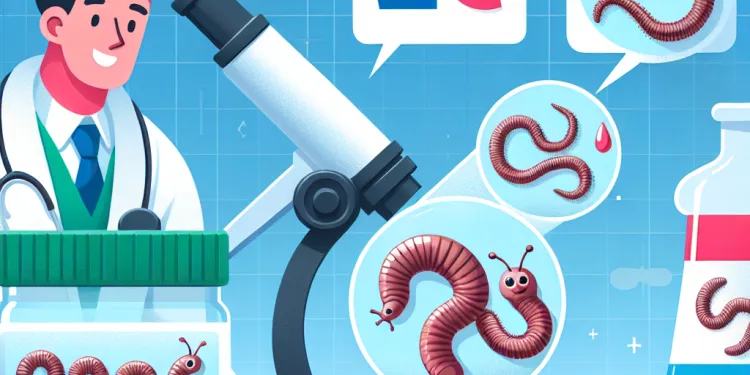
Can screw worms cause zoonotic disease?
Relevance: 79%
-

How do screw worms reproduce?
Relevance: 79%
-

Are there any natural predators of screw worms?
Relevance: 78%
-

Where are screw worms found geographically?
Relevance: 75%
-

What measures are taken during a screw worm outbreak?
Relevance: 75%
-

What methods are used to control screw worm populations?
Relevance: 74%
-

Has the screw worm been eradicated in some areas?
Relevance: 69%
-

What species of flies produce screw worms?
Relevance: 68%
-

What economic impact do screw worms have?
Relevance: 51%
-

What animals can be affected by screw worms?
Relevance: 51%
-

How can individuals help in the fight against screw worms?
Relevance: 47%
-
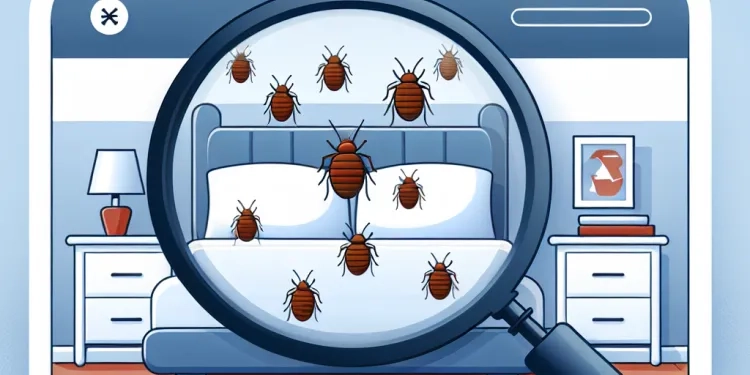
What are the signs of a bed bug infestation?
Relevance: 33%
-

Why is screw worm eradication important?
Relevance: 27%
-
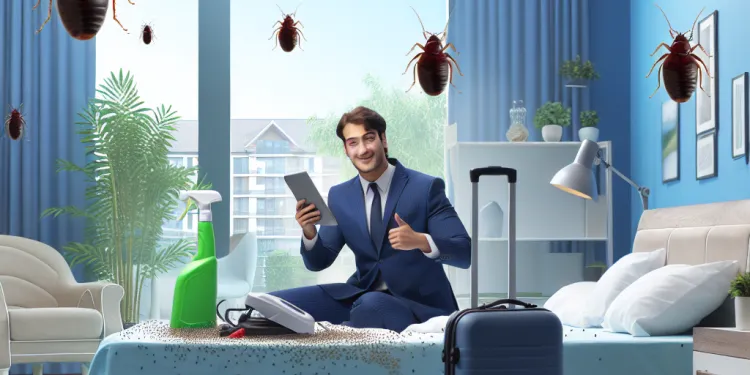
What should I do if I find bed bugs in my house?
Relevance: 17%
-
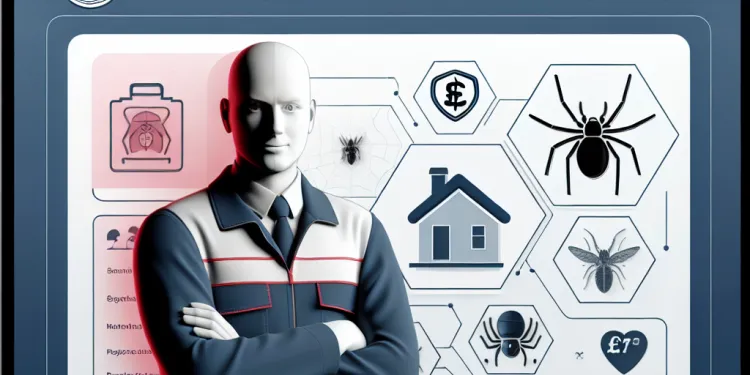
Is professional pest control needed for spiders?
Relevance: 17%
-
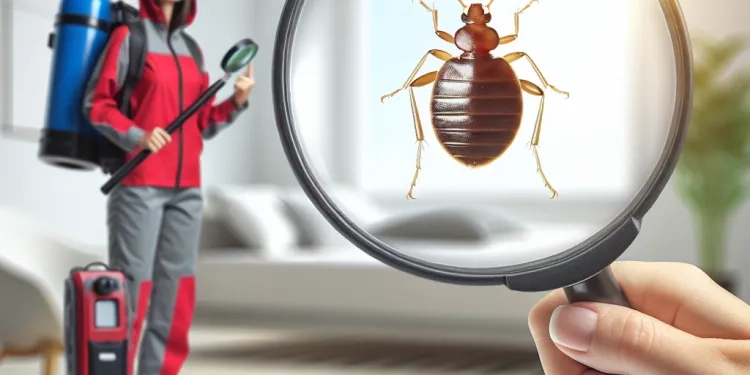
Can I get rid of bed bugs myself?
Relevance: 17%
-
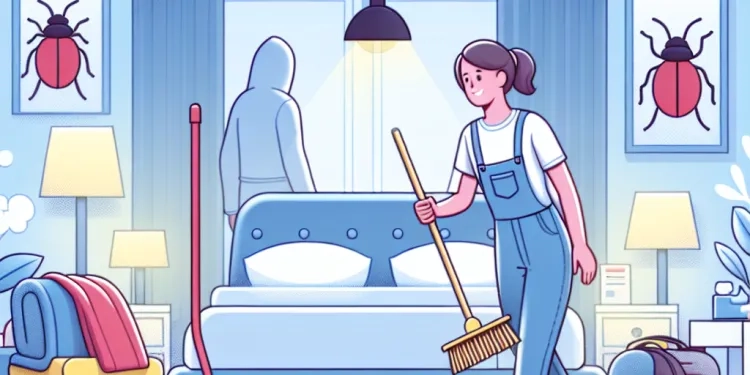
Are bed bugs dangerous?
Relevance: 17%
-
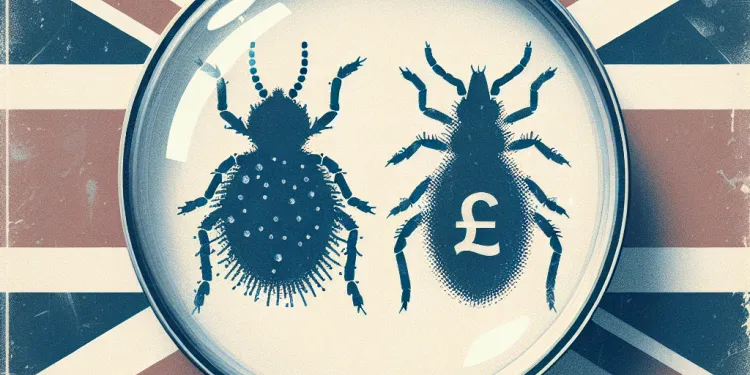
Are nits and head lice the same thing?
Relevance: 16%
-

Why are bed bugs so difficult to eliminate?
Relevance: 16%
-

Having chemotherapy and other treatments in the Day Treatment Unit
Relevance: 15%
-
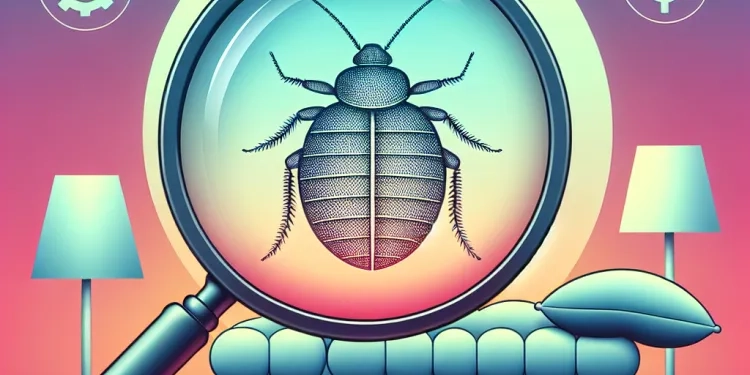
What are bed bugs?
Relevance: 15%
-

Bed Bugs / bedbugs
Relevance: 15%
-

Is there a treatment for measles?
Relevance: 15%
-

Is there a treatment for measles?
Relevance: 15%
-

Will disposing of my mattress get rid of bed bugs?
Relevance: 15%
-

Are chiropractic treatments safe?
Relevance: 15%
-

Is Botox treatment expensive?
Relevance: 15%
-

Are chiropractic treatments painful?
Relevance: 15%
-
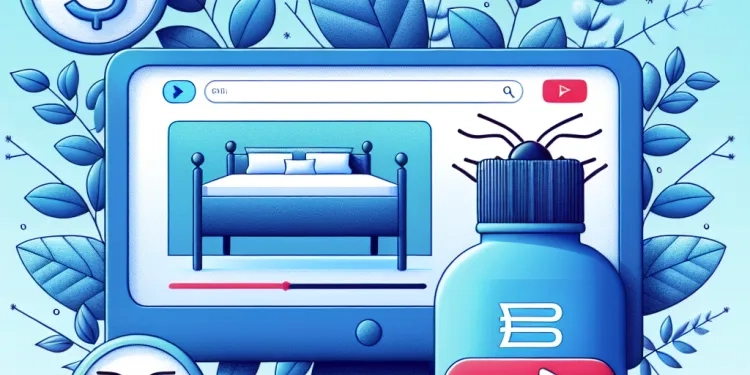
Are there any natural remedies for bed bugs?
Relevance: 14%
-

What is the treatment for appendicitis?
Relevance: 14%
-

Eating disorders: treatment
Relevance: 14%
-

Are nits contagious?
Relevance: 14%
Understanding Screw Worm Infestations
Screw worm infestations are a serious veterinary issue, primarily affecting warm-blooded animals, including livestock and pets. The screw worm fly, specifically the larvae (maggots), infest open wounds and feed on living tissue. This condition can lead to severe tissue damage and, if untreated, can be fatal to the host animal.
Identification and Early Diagnosis
Prompt identification and diagnosis of screw worm infestation are critical for effective treatment. The presence of screw worms can be identified by observing open wounds that do not heal and instead become larger. Infected wounds may exhibit a foul odor and display visible maggots. Early diagnosis by a veterinarian or a professional specialist is essential to manage the infestation swiftly and prevent further deterioration.
Treatment Methods
Treatment of screw worm infestations involves a combination of manual, chemical, and sometimes biological methods. Manual removal of the larvae is the first step, where visible maggots are carefully extracted from the wound using tweezers. This process may require sedation or local anesthesia to manage the animal's pain and stress levels.
Chemically, a veterinarian may apply special insecticide formulations directly to the wound. These formulations, which may contain organophosphates or other insecticidal compounds, are designed to kill remaining larvae and prevent new infestations. In some instances, antibiotics may also be administered to control secondary bacterial infections that can arise from screw worm damage.
Biological Control Measures
Biological control is a significant component in areas where screw worm outbreaks are common. The Sterile Insect Technique (SIT) is utilized, where large numbers of sterilized male screw worms are released into the wild. This technique disrupts the reproduction cycle as sterile males compete with wild males to mate with females, thereby reducing the population of screw worms over time. Although more commonly used in countries where screw worms are endemic, SIT has proven to be an effective long-term control measure.
Preventing Reinfestation
Preventative measures are crucial to avoid future screw worm infestations. Regular inspection of animals, especially those with fresh wounds, is necessary. Maintaining clean environments and promptly treating any cuts or injuries with disinfectant can prevent screw worm eggs from hatching onto the host. Farmers and pet owners alike are advised to monitor animals closely, especially during warmer months when screw worms are more active.
Conclusion
Effective treatment and prevention of screw worm infestations require a combined approach that includes manual removal, chemical treatments, biological controls, and vigilant preventative measures. Early identification and treatment significantly enhance the health and welfare of affected animals. In the UK, while screw worm infestations are not common, awareness and readiness to tackle such issues are essential for safeguarding animal health.
Understanding Screw Worm Problems
Screw worms are tiny insects that can hurt animals. They mostly affect animals like farm animals and pets. These insects lay eggs in open wounds. The baby insects, called maggots, eat the animal's flesh. This can make the animal very sick, and if not treated, the animal can die.
Spotting the Problem Early
It is important to find screw worms early to help the animal get better quickly. You might see the open wound getting bigger and not healing. The wound might also smell bad and have maggots in it. A veterinarian, who is an animal doctor, can help spot the problem early and treat it.
Ways to Treat Screw Worms
Getting rid of screw worms means using different methods. First, you can pull out the maggots by hand using tweezers. This can hurt the animal, so they might need medicine to feel less pain.
The veterinarian might also use special medicine on the wound to kill the maggots. These medicines stop new maggots from coming. Sometimes, the vet might give the animal medicine to stop infections that make the animal even sicker.
Using Nature to Help
In places where screw worms are common, people use a really smart way to stop them. They release a lot of male screw worms that cannot have babies. These males compete with normal males, so fewer baby screw worms are born. Over time, this makes the number of screw worms go down.
Stopping Screw Worms from Coming Back
To stop screw worms from coming back, you need to keep an eye on your animals. Check animals with wounds often. Keep where they live clean. If an animal gets a cut, clean it right away. This helps stop the screw worm eggs from hatching. Pay extra attention during warmer months when screw worms are more active.
Conclusion
Taking care of screw worms means using many methods together. You can remove them by hand, use medicines, release special insects, and keep animals clean. Finding the problem early helps the animal get better faster. Even though screw worms are not common in the UK, being aware and ready can keep animals safe and healthy.
Frequently Asked Questions
What are screw worms?
Screw worms are parasitic flies that pose a threat to livestock and other warm-blooded animals, as their larvae feed on the flesh of living hosts.
How are screw worm infestations identified?
Screw worm infestations are identified through symptoms such as persistent wounds, foul-smelling discharge, and the visible presence of larvae.
What is the first step in treating screw worm infestations?
The first step is to manually remove all visible larvae from the wound and clean the affected area thoroughly.
What chemicals are used to treat screw worm infestations?
Insecticides and larvicides are used to kill remaining larvae and prevent further infestations.
How can wounds caused by screw worms be managed?
Wounds should be kept clean and dressed regularly to prevent secondary infections.
What role do antibiotics play in treatment?
Antibiotics may be administered to treat or prevent bacterial infections following screw worm infestations.
Are there any natural remedies for screw worm infestations?
Some natural oils and herbal extracts may provide some relief, but they should be used with caution and in conjunction with professional veterinary care.
What preventive measures can be taken against screw worm infestations?
Preventive measures include maintaining hygiene, removing organic material, and using insect repellents or barriers.
How long does it take to treat a screw worm infestation?
The duration of treatment can vary, but typically requires ongoing care until the wound is completely healed and free of larvae.
Can screw worm infestations recur?
Yes, without proper treatment and preventive measures, screw worm infestations can recur.
Is professional veterinary assistance necessary?
Yes, due to the potential complications, seeking professional veterinary assistance is highly recommended.
What role does wound hygiene play in treatment?
Maintaining wound hygiene is crucial for preventing further infestation and promoting healing.
Can humans be affected by screw worms?
Yes, humans can be infested by screw worms if larvae enter through a wound or mucous membrane.
What is the sterile insect technique in controlling screw worms?
The sterile insect technique involves releasing sterilized male flies to mate, which helps reduce the population by preventing fertile offspring.
Are there any vaccines available for screw worm infestations?
Currently, there are no vaccines available to prevent screw worm infestations.
Can screw worm infestations lead to death?
If left untreated, screw worm infestations can lead to severe tissue damage, secondary infections, and potentially death.
What supportive care can be provided to affected animals?
Supportive care includes providing nutritious food, hydration, and monitoring vital signs during recovery.
Why is early detection important in treating screw worm infestations?
Early detection is important as it reduces the extent of tissue damage and increases the chances of successful treatment.
Can environmental control measures help in managing screw worms?
Yes, managing the environment by removing fly breeding sites can help in reducing screw worm infestations.
What is the role of research in the treatment of screw worm infestations?
Research plays a crucial role in developing more effective treatments and preventive strategies for screw worm infestations.
What are screw worms?
Screw worms are a type of fly. The baby flies are called larvae. They can make animals sick. These flies lay eggs on animals and people. The eggs turn into larvae. Larvae can hurt the skin.
Animal doctors can help if animals get screw worms. People can use special medicine too.
If you want to learn more, you can ask a teacher or use a picture book about bugs.
Screw worms are bugs that can hurt animals. They are a type of fly. Their baby worms eat the skin of animals that are alive. This can make the animals very sick.
How do you know if an animal has screw worms?
If animals have screw worm, you can tell because they have wounds that don't heal. The wounds might smell bad, and you might see tiny worms in them.
How do you start treating screw worm problems?
First, take out all the tiny bugs you can see in the sore. Then, clean the sore really well.
Which medicines help get rid of screw worms?
Bug killers and baby bug killers are used to get rid of the tiny bugs and stop more from coming.
How can you take care of wounds made by screw worms?
Screw worms are bugs that can hurt animals and people. Here is how to help:
- Clean the Wound: Gently wash the cut with clean water.
- Remove Worms: Get help from a doctor or vet to take out the worms.
- Use Medicine: You might need a cream or drops to help it heal. The doctor or vet will tell you what to use.
- Cover the Wound: Use a clean bandage to keep it safe.
- Check Often: Look at the wound every day and keep it clean.
If you need help reading or understanding, ask a family member, friend, or professional for assistance.
Keep cuts and scrapes clean and covered with a bandage. This helps stop germs from making them worse.
What do antibiotics do to help us get better?
Doctors may give medicine called antibiotics to help fight bacteria after someone has had screw worm. Antibiotics can stop you from getting sick or help you heal if you are sick.
Can you use natural ways to get rid of screw worm?
Some natural oils and plant extracts might help a little, but you should be careful and talk to a vet too.
How can we stop screw worms from causing problems?
Screw worms are bad bugs that can hurt animals and people. Here are some ways to stop them:
- Keep animals clean: Make sure pets and farm animals are clean and healthy.
- Check for wounds: Look at animals often to see if they have cuts or wounds. Clean and cover any wounds.
- Use medicine: Sometimes, special medicine can help keep screw worms away. Ask a vet for help.
- Watch out when traveling: If you go to places where screw worms are common, be extra careful.
Use these tips to help stop screw worms. Always ask a doctor or vet if you need more help.
To stay safe from bugs: Keep clean, get rid of food scraps, and use bug spray or screens.
How long does it take to get rid of screw worms?
It can take a few days to a few weeks to treat screw worms.
The vet uses medicine to kill the worms.
Help tools like pictures or videos can show you how it works. Audiobooks can help if reading is hard.
The time it takes to treat a wound can be different for everyone. You need to take care of it until the wound is closed and there are no more bugs in it.
Here are some things that might help you:
- Ask someone to help you understand and remember your treatment plan.
- Use a calendar to track your progress each day.
Can screw worm infestations happen again?
Yes, screw worm problems can happen again if they are not treated properly and if steps are not taken to prevent them.
Do I need to see an animal doctor?
Yes, it is a good idea to visit the vet because things can get tricky.
Why is cleaning a wound important?
Cleaning a wound helps it heal better. It stops germs from causing infection. Clean wounds stay healthy and heal faster.
Tools like clean water, soap, and bandages can help keep a wound clean. Ask a grown-up if you need help!
Keeping a cut or sore clean is very important. It stops more germs from getting in and helps it heal faster.
Can screw worms make people sick?
Yes, people can get screw worms if the worm babies get into a cut or soft skin.
How does the sterile insect method help stop screw worms?
The sterile insect technique is a way to help control fly populations. It works by letting out male flies that cannot have babies. When these flies mate, they do not make more flies. This helps keep the number of flies down.
Can you get a vaccine for screw worm?
No, there is no vaccine to stop screw worm.
You can stop screw worms by:
- Keeping animals clean.
- Looking at animals often to check for screw worms.
- Using medicine to stop flies.
Right now, there are no vaccines to stop screw worms from getting into animals or people.
Can screw worms cause death?
If screw worms are not treated, they can cause a lot of harm. They can hurt the skin badly, make other infections happen, and might even cause death.
How can we help animals that are sick?
There are ways to help animals when they are not feeling well. Here are some things you can do:
- Give them lots of water to drink.
- Make sure they have a comfy, quiet place to rest.
- Feed them healthy food that they like.
- Keep them clean and check for any signs of getting worse.
- Ask a vet for advice if you can.
You can also use tools like picture cards or easy-to-read guides to know more about taking care of sick animals.
Supportive care means giving healthy food, drinking enough water, and checking how the body is doing while getting better.
Why is it important to find screw worm problems early?
Finding screw worm problems early is very important. It helps stop the worms from spreading and causing more harm. The worms can make animals very sick quickly. If we find the worms early, we can treat the animals faster and make them better.
Here are some ways that can help:
- Look closely: Check animals often for any signs of the worms, like wounds that do not heal.
- Tell someone: If you see a problem, tell a vet or an expert right away.
- Learn more: Use pictures and simple stories to understand what to look for.
Finding a problem early is important. It helps stop damage to the body and makes it easier to get better with treatment.
Can we stop screw worms with changes to the environment?
Screw worms are harmful insects. They can hurt animals and people. We can try to stop them by changing their environment.
Here are some ways to help:
- Keep places clean and tidy.
- Use screens or nets to keep insects out.
- Close doors and windows.
- Put out traps to catch them.
If you need help, you can:
- Ask an adult or a friend for help.
- Look at pictures to understand better.
- Use simple apps that read text out loud.
Yes, we can stop screw worms by keeping the area clean and getting rid of places where flies lay eggs.
How does research help treat screw worm infestations?
Research helps us find new ways to treat screw worm infestations.
Researchers study screw worms to learn more about them.
This helps doctors and vets know the best ways to get rid of them.
Tools like picture books or videos can make learning easier.
Research is very important. It helps us find better ways to treat and stop screw worm problems.
Useful Links
This website offers general information and is not a substitute for professional advice.
Always seek guidance from qualified professionals.
If you have any medical concerns or need urgent help, contact a healthcare professional or emergency services immediately.
- Ergsy carfully checks the information in the videos we provide here.
- Videos shown by Youtube after a video has completed, have NOT been reviewed by ERGSY.
- To view, click the arrow in centre of video.
- Most of the videos you find here will have subtitles and/or closed captions available.
- You may need to turn these on, and choose your preferred language.
- Go to the video you'd like to watch.
- If closed captions (CC) are available, settings will be visible on the bottom right of the video player.
- To turn on Captions, click settings .
- To turn off Captions, click settings again.
More Items From Ergsy search
-

How are screw worm infestations treated?
Relevance: 100%
-

Can screw worm infestations be prevented?
Relevance: 99%
-

How do screw worms infest their hosts?
Relevance: 98%
-

What are the symptoms of a screw worm infestation?
Relevance: 98%
-

How long do screw worm larvae typically infest a host?
Relevance: 88%
-

Are screw worms dangerous to humans?
Relevance: 85%
-

What are Screw Worms parasites?
Relevance: 83%
-

What impact do screw worms have on livestock?
Relevance: 80%
-

Can screw worms cause zoonotic disease?
Relevance: 79%
-

How do screw worms reproduce?
Relevance: 79%
-

Are there any natural predators of screw worms?
Relevance: 78%
-

Where are screw worms found geographically?
Relevance: 75%
-

What measures are taken during a screw worm outbreak?
Relevance: 75%
-

What methods are used to control screw worm populations?
Relevance: 74%
-

Has the screw worm been eradicated in some areas?
Relevance: 69%
-

What species of flies produce screw worms?
Relevance: 68%
-

What economic impact do screw worms have?
Relevance: 51%
-

What animals can be affected by screw worms?
Relevance: 51%
-

How can individuals help in the fight against screw worms?
Relevance: 47%
-

What are the signs of a bed bug infestation?
Relevance: 33%
-

Why is screw worm eradication important?
Relevance: 27%
-

What should I do if I find bed bugs in my house?
Relevance: 17%
-

Is professional pest control needed for spiders?
Relevance: 17%
-

Can I get rid of bed bugs myself?
Relevance: 17%
-

Are bed bugs dangerous?
Relevance: 17%
-

Are nits and head lice the same thing?
Relevance: 16%
-

Why are bed bugs so difficult to eliminate?
Relevance: 16%
-

Having chemotherapy and other treatments in the Day Treatment Unit
Relevance: 15%
-

What are bed bugs?
Relevance: 15%
-

Bed Bugs / bedbugs
Relevance: 15%
-

Is there a treatment for measles?
Relevance: 15%
-

Is there a treatment for measles?
Relevance: 15%
-

Will disposing of my mattress get rid of bed bugs?
Relevance: 15%
-

Are chiropractic treatments safe?
Relevance: 15%
-

Is Botox treatment expensive?
Relevance: 15%
-

Are chiropractic treatments painful?
Relevance: 15%
-

Are there any natural remedies for bed bugs?
Relevance: 14%
-

What is the treatment for appendicitis?
Relevance: 14%
-

Eating disorders: treatment
Relevance: 14%
-

Are nits contagious?
Relevance: 14%


